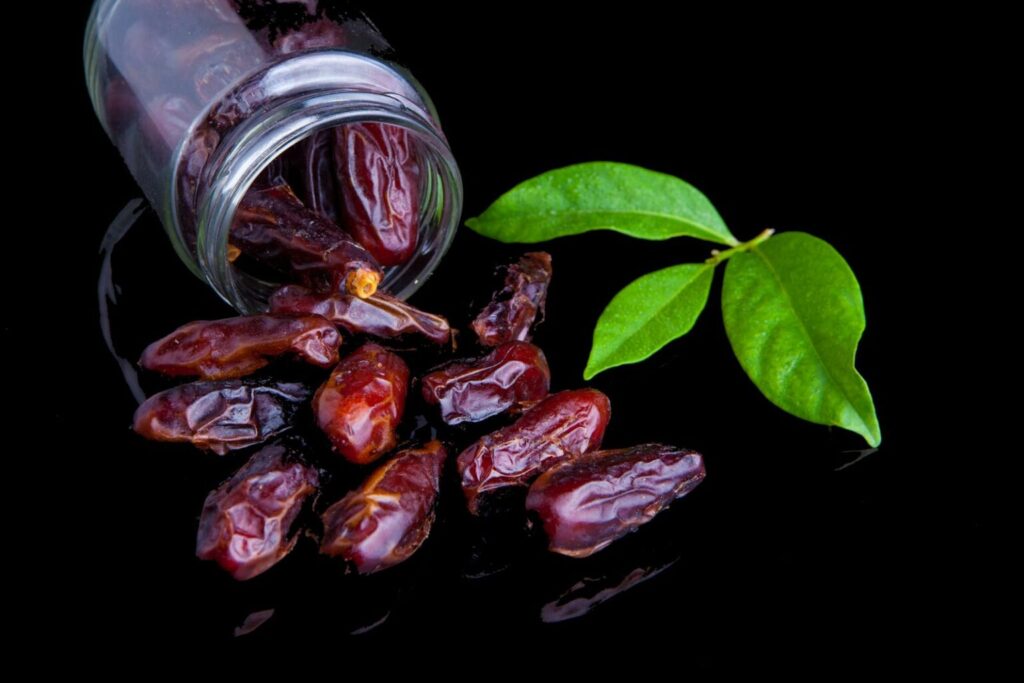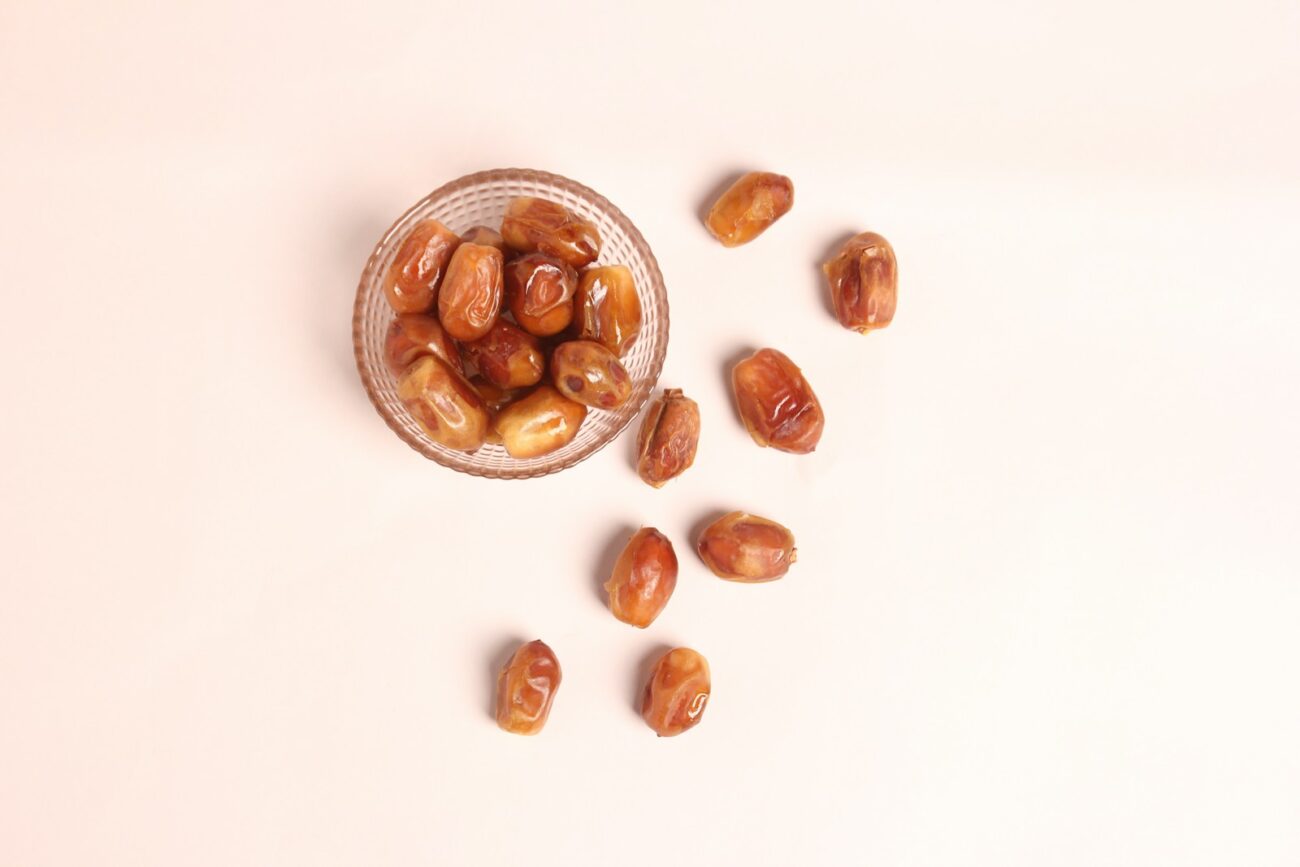Sweet, chewy, and packed with nutrients, dates are a delicious and versatile fruit that has been enjoyed for thousands of years. Often referred to as “nature’s candy,” dates are not only a tasty treat but also a powerhouse of vitamins, minerals, and antioxidants. Whether you eat them as a snack, use them as a natural sweetener, or incorporate them into your recipes, dates offer a wide range of health benefits.
In this blog post, we’ll explore the nutritional profile of dates and why they deserve a regular spot in your diet.
What Are Dates?
Dates are the fruit of the date palm tree (Phoenix dactylifera), which is native to the Middle East but is now cultivated in many tropical and subtropical regions around the world. They come in several varieties, including Medjool, Deglet Noor, and Barhi, each with its own unique flavor and texture. Dates are typically dried, which concentrates their natural sweetness and extends their shelf life.
Nutritional Profile of Dates
Here’s a breakdown of the key nutrients found in 100 grams (about 3–4 Medjool dates):
- Calories: 277 kcal
- Carbohydrates: 75 g
- Dietary Fiber: 7 g
- Sugars: 66 g (natural sugars like glucose, fructose, and sucrose)
- Protein: 2 g
- Fat: 0.2 g
- Potassium: 696 mg (20% of the Daily Value)
- Magnesium: 54 mg (13% of the Daily Value)
- Vitamin B6: 0.2 mg (10% of the Daily Value)
- Iron: 0.9 mg (5% of the Daily Value)
- Calcium: 64 mg (6% of the Daily Value)
Dates are also rich in antioxidants, including flavonoids, carotenoids, and phenolic acid, which contribute to their health benefits.
Top Health Benefits of Dates
- Rich in Natural Energy
Dates are an excellent source of natural sugars like glucose, fructose, and sucrose, making them a quick and healthy energy booster. They’re a great snack for athletes or anyone needing a mid-day pick-me-up. - Supports Digestive Health
The high fiber content in dates promotes healthy digestion by preventing constipation and supporting regular bowel movements. Fiber also helps feed beneficial gut bacteria, promoting a balanced gut microbiome. - Packed with Antioxidants
Dates are loaded with antioxidants, including flavonoids, carotenoids, and phenolic acid, which help combat oxidative stress and reduce inflammation. These compounds may lower the risk of chronic diseases like heart disease, diabetes, and cancer. - Promotes Heart Health
The potassium in dates helps regulate blood pressure, while the magnesium supports heart muscle function. The antioxidants in dates also help reduce cholesterol levels and prevent the buildup of plaque in the arteries. - Supports Bone Health
Dates are a good source of minerals like calcium, magnesium, and phosphorus, which are essential for maintaining strong and healthy bones. Regular consumption of dates may help prevent conditions like osteoporosis. - Natural Sweetener Alternative
Dates are a great substitute for refined sugar in recipes. Their natural sweetness makes them perfect for smoothies, baked goods, and desserts, while their fiber content helps slow down sugar absorption. - Boosts Brain Health
The antioxidants in dates, particularly flavonoids, have been shown to reduce inflammation in the brain and lower the risk of neurodegenerative diseases like Alzheimer’s. Dates also contain vitamin B6, which supports cognitive function. - Aids in Weight Management
Despite their sweetness, dates are relatively low in calories and high in fiber, making them a satisfying snack that can help curb cravings and prevent overeating. - Supports Immune Function
Dates contain small amounts of immune-boosting nutrients like vitamin C, zinc, and selenium, which help protect the body against infections and illnesses. - May Help During Labor
Studies have shown that eating dates in the final weeks of pregnancy may help ease labor and delivery. Dates are believed to promote cervical dilation and reduce the need for induced labor.
How to Enjoy Dates
Dates are incredibly versatile and can be enjoyed in a variety of ways:
- As a Snack: Eat them on their own for a quick energy boost.
- Stuffed: Fill dates with nut butter, nuts, or cheese for a delicious and nutritious treat.
- In Smoothies: Blend dates into smoothies for natural sweetness and added fiber.
- In Baking: Use dates as a natural sweetener in muffins, energy bars, or cookies.
- In Salads: Chop dates and add them to salads for a touch of sweetness and texture.
- As a Spread: Make date paste by blending soaked dates with water and use it as a spread or sweetener.
Fun Fact: Dates and History
Dates have been cultivated for over 5,000 years and are believed to have originated in the Middle East. They were a staple food in ancient civilizations and were often referred to as the “fruit of life” due to their long shelf life and nutritional value. Today, dates are enjoyed worldwide and are particularly popular during Ramadan as a traditional food for breaking the fast.

Dates are more than just a sweet treat—they’re a nutrient-dense superfood that offers a wide range of health benefits. From boosting energy and supporting digestion to promoting heart health and reducing inflammation, dates are a delicious and natural way to nourish your body.
So, the next time you’re craving something sweet, reach for a handful of dates and enjoy all the goodness they have to offer.
What’s your favorite way to enjoy dates?
Share your thoughts and recipes in the comments below! 🌴

